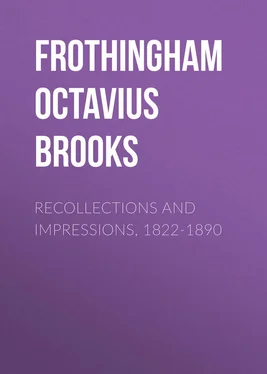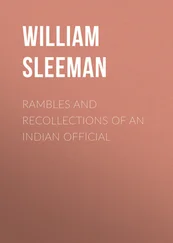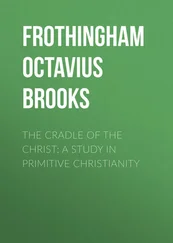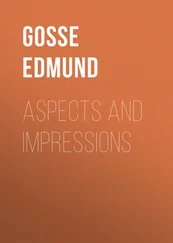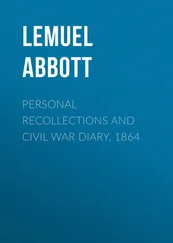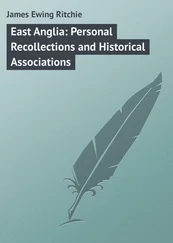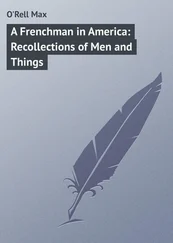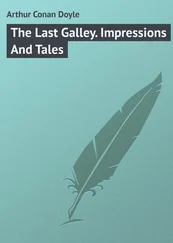Octavius Frothingham - Recollections and Impressions, 1822-1890
Здесь есть возможность читать онлайн «Octavius Frothingham - Recollections and Impressions, 1822-1890» — ознакомительный отрывок электронной книги совершенно бесплатно, а после прочтения отрывка купить полную версию. В некоторых случаях можно слушать аудио, скачать через торрент в формате fb2 и присутствует краткое содержание. Жанр: foreign_antique, foreign_prose, на английском языке. Описание произведения, (предисловие) а так же отзывы посетителей доступны на портале библиотеки ЛибКат.
- Название:Recollections and Impressions, 1822-1890
- Автор:
- Жанр:
- Год:неизвестен
- ISBN:нет данных
- Рейтинг книги:3 / 5. Голосов: 1
-
Избранное:Добавить в избранное
- Отзывы:
-
Ваша оценка:
- 60
- 1
- 2
- 3
- 4
- 5
Recollections and Impressions, 1822-1890: краткое содержание, описание и аннотация
Предлагаем к чтению аннотацию, описание, краткое содержание или предисловие (зависит от того, что написал сам автор книги «Recollections and Impressions, 1822-1890»). Если вы не нашли необходимую информацию о книге — напишите в комментариях, мы постараемся отыскать её.
Recollections and Impressions, 1822-1890 — читать онлайн ознакомительный отрывок
Ниже представлен текст книги, разбитый по страницам. Система сохранения места последней прочитанной страницы, позволяет с удобством читать онлайн бесплатно книгу «Recollections and Impressions, 1822-1890», без необходимости каждый раз заново искать на чём Вы остановились. Поставьте закладку, и сможете в любой момент перейти на страницу, на которой закончили чтение.
Интервал:
Закладка:
My father was greatly interested in the education of his boys; watched all their attainments; taught them French; encouraged their learning how to box, and fence, and swim; while my mother shed an atmosphere of peace over the whole household. She made one joke only, as far as my memory serves me, – and I mention it here lest any one should suppose there was a lack of sunshine in her nature. My father was very fond of "vöslauer," an Austrian red wine. When the last bottle was produced my mother, said archly, "your face will lower when it is all drunk up." It was not much of a joke, but a small jest will show the spirit of fun quite as well as a large one.
There was a singular combination of aspiration with peace at that time. Probably there is as much aspiration now as there was then, perhaps more; but it is associated with social reform rather than with personal perfection; there is peace, too, at the present day, but it is harder to get at and needs to be sought most often in private homes; the inward peace is found in all periods.
How the principles then formed would bear the strain of a later age or a larger sphere remained to be proved. Fifty years ago the modern era with its complications and perplexities could not even be suspected. The foundations alone could then be laid.
II.
EDUCATION
Of the primary schools it is unnecessary to speak. They were of the same kind that were established in Boston at that period. Indeed I can recollect but two, one, a child's school of boys and girls, kept by a Miss Scott, at the corner of Mt. Vernon Street and Hancock; the other a boys' school kept by a Mr. Capen, a poor hump-backed cripple who could not get out of his chair, but wheeled himself about the room, and kept on his table a cowhide, which was pretty generously exercised. The school was on Bedford Street behind the "Church of Church Green." A little alley-way ran along in the rear of the church through which I used to go to the school-house.
The Latin School was an old institution brought hither by Rev. John Cotton, who remembered the Free Grammar School founded in Lincolnshire, England, by Queen Mary, in which Latin and Greek were taught. It was established here, in 1635, five years after the landing of Winthrop, two or three years before Harvard College. When I was there, it stood on School Street, opposite the Franklin statue. It had a granite front and a cupola. The head-master was Charles K. Dillaway, an excellent scholar, a faithful teacher, an agreeable man. He had to resign in consequence of ill-health. The tutors were Henry W. Torrey and Francis Gardner, who afterwards became head-master. Both were pupils of the school. Mr. Frederick P. Leverett, author of the Latin Lexicon, was chosen to succeed Mr. Dillaway, but died before assuming the office. The next head-master, during my course, was Epes Sargent Dixwell, a most accomplished man, an elegant scholar, a gentleman of the world, very much interested, as I remember, in the plastic art of Greece. He is still living, and amuses himself by writing Greek. Mr. Dixwell held office till 1851, when he established a private school. The discipline of the Latin School was strict but mild. Corporal punishment was the unquestioned rule, but it was never harshly administered, though the knowledge that it might be undoubtedly did a good deal toward stimulating the ambition of the scholars. Here and there no doubt a boy exasperated the teacher by idleness or disorder; possibly at moments the teacher was nervous and irritable. I recollect a single instance in which he was over-sensitive, too prone to take offence, which fastened suspiciously upon some individual scholar; but injustice was a very rare occurrence. We learned Greek and Latin, the rudiments of algebra, writing and declamation; but the best part of the education I received in those days was an atmosphere of elegant literature, derived from friends of my father. I used to see William H. Prescott taking his walk on Beacon Street, in the sun, and have often sat in his study in his tranquil hours, and heard him talk. The beautiful library of George Ticknor, at the head of Park Street, was open to me, and I can see his form now as he walked on the Common. George S. Hillard, the elegant man of letters, was a familiar figure on the street. Charles Sumner, then a young law student, strode vigorously along, his manner even then suggesting the advent of a new era.
In 1846, I listened to his oration before the Phi Beta Kappa Society of Harvard University on the Scholar [Pickering]; the Jurist [Story]; the Artist [Allston]; the Philanthropist [Channing]; and his bold declamation was strangely in contrast with the academical gown that he wore. Daniel Webster used to stalk by our house, the embodiment of the Constitution, the incarnation of law, the black locomotive of the train of civilization. Ralph Waldo Emerson often sat at my father's table diffusing the radiance of serene ideas, and heralding the diviner age that was to come.
From the Latin School to Harvard College was an easy transition. There existed an impression that Latin-School boys might take their ease for the first year at Cambridge, because they were so well prepared, but I found enough to do; there was the great library, there were the advanced studies, there was the more perfect training. The President was Josiah Quincy, the elder. Henry W. Longfellow was professor of modern languages; Cornelius C. Felton, the ardent philhellene, taught Greek; Charles Beck, a German, taught Latin; Benjamin Peirce was professor of mathematics; James Walker was an instructor in intellectual and moral philosophy; Joseph Lovering, teacher in chemistry. Among the tutors were Bernard Roelker, in German; Pietro Bachi, in Italian; Francisco Sales, in Spanish.
The new buildings now in the college yard were not erected; Holworthy (1812), Stoughton (1804-1805), Hollis (1763), Harvard (1766), Holden (1734), Massachusetts Hall (1720), University Hall (1812-1813) were in existence. There were no athletics; there was no gymnasium; there was no boating; there was little base-ball. There were few literary societies; so that we were driven back mainly upon intellectual labor. The professors' houses were always open, and there was choice society in the town. I recollect particularly well going to the house of John White Webster, who was executed later for the murder of Dr. Parkman. He was very fond of music and had a daughter who sang finely, besides being handsome. She afterwards married Mr. Dabney, of Fayal. The Doctor was a nervous man, high strung, but good-natured and polite. His fatal encounter with Dr. Parkman I always attributed to a sudden outbreak of passion.
Within the grounds of the college we were quite studious, companionable among ourselves. There was no rioting, no excess of any kind. Walking and swimming in the river Charles were our chief recreations. Connection with Boston was infrequent and difficult, as there was no railroad. The Sundays could be passed in the city if the student brought a certificate that he went regularly to church; otherwise it was expected that the First Church, or one of the others, should be frequented. The instruction was of a cordial, friendly, courteous, and humane kind; the professors were enthusiastic students in their departments. I well recollect Professor Longfellow's kindness; Professor Felton's ardor (I visited Pompeii with him in 1853). Charles Beck was a burning patriot in the war. Pietro Bachi's great eyes lighted up and glowed as he talked about Dante. Bernard Roelker afterwards became a lawyer in New York. Charles Wheeler and Robert Bartlett, tutors, both rare spirits, died young. On the whole, life at Harvard College was exceedingly pleasant, and a real love of learning was implanted in young men's bosoms.
The corner-stone of Gore Hall was laid in 1813. The books were moved into the library in the summer vacation of 1814. There were forty-one thousand volumes at that time.
Читать дальшеИнтервал:
Закладка:
Похожие книги на «Recollections and Impressions, 1822-1890»
Представляем Вашему вниманию похожие книги на «Recollections and Impressions, 1822-1890» списком для выбора. Мы отобрали схожую по названию и смыслу литературу в надежде предоставить читателям больше вариантов отыскать новые, интересные, ещё непрочитанные произведения.
Обсуждение, отзывы о книге «Recollections and Impressions, 1822-1890» и просто собственные мнения читателей. Оставьте ваши комментарии, напишите, что Вы думаете о произведении, его смысле или главных героях. Укажите что конкретно понравилось, а что нет, и почему Вы так считаете.
